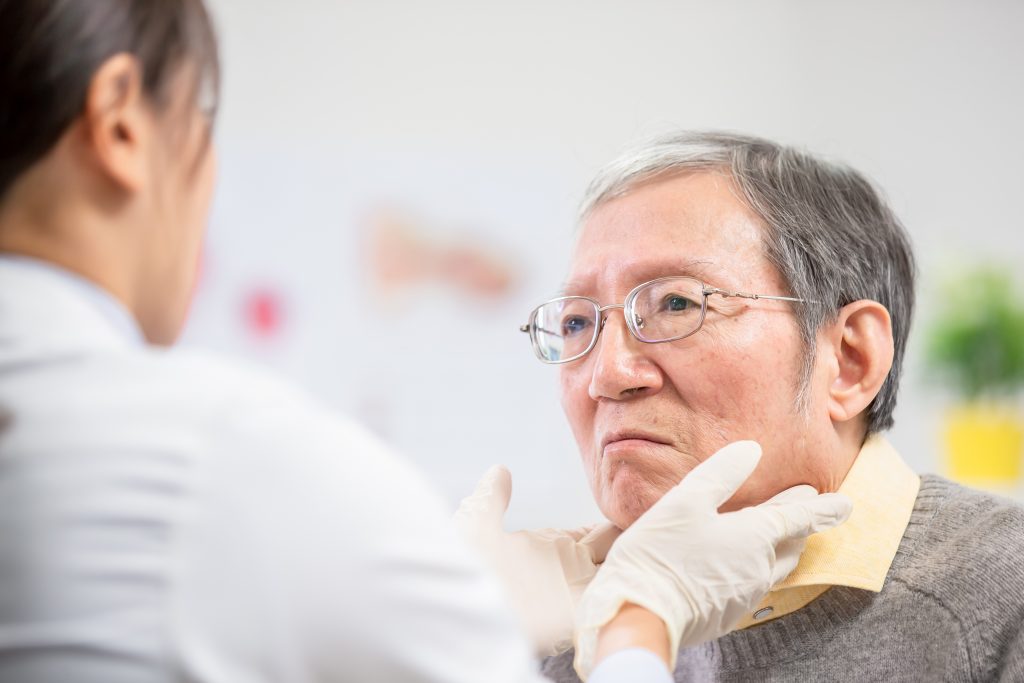When discussing swallowing disorders in adults, one must consider all of the stages
involved in eating. The first phase involves everything from the anticipation of the
food—the smell, the amount on the fork, and the temperature– to the chewing of the
food, the mixing of the food with saliva, and the forming of the food into something that can be swallowed.
The next phase begins as the food is moved to the back of the mouth
by the tongue. As food reaches the upper throat area, the next phase begins and several
muscles contract and structures move into place to protect the airway from the
approaching food and to guide the food down the esophagus (the tube that transports food
directly to the stomach). The final stage occurs as food enters the esophagus and is
moved to the stomach by a squeezing action of the throat muscles. A breakdown in
swallowing may occur at any of these levels. A speech-language pathologist may address
difficulties during any of the first three phases.
There are a variety of reasons why individuals develop swallowing disorders. Often,
swallowing disorders in adults are the result of some type of insult to the brain or nervous
system. This may be due to stroke, traumatic brain injury, spinal cord injury,
degenerative diseases (e.g. ALS, Alzheimer’s, Parkinson’s or Multiple Sclerosis), or
Chronic Obstructive Pulmonary Disease (COPD). Swallowing difficulties may also
result as a side effect to medication or, occasionally, as a response to the body’s natural
aging process.
If you are concerned that you or someone you love may be experiencing difficulty with
swallowing, ask yourself the following questions:
- Does the person often cough or choke when eating or drinking?
- If yes, when does it happen most often? With liquids? Food? In the morning? Nighttime?
- Does the person have difficulty chewing foods or removing food from a fork or spoon with his/her lips?
- Does the person have a history of pneumonia or respiratory infection?
- Has the person had recent unexplained weight loss?
- If you answered “yes” to any of these questions or have some more of your own, contact a speech-language pathologist for consultation or evaluation.
Depending on the cause of the swallowing disorder, treatment will vary. Treatment may range anywhere from exercises for the tongue, lips, jaw, and muscles of the throat to modifying the persons diet to ensure their respiratory system is safe. There are so many factors that come into play when we treat individuals with swallowing disorders. Our main goal is to keep feeding safe and enjoyable for you or the person you love!

